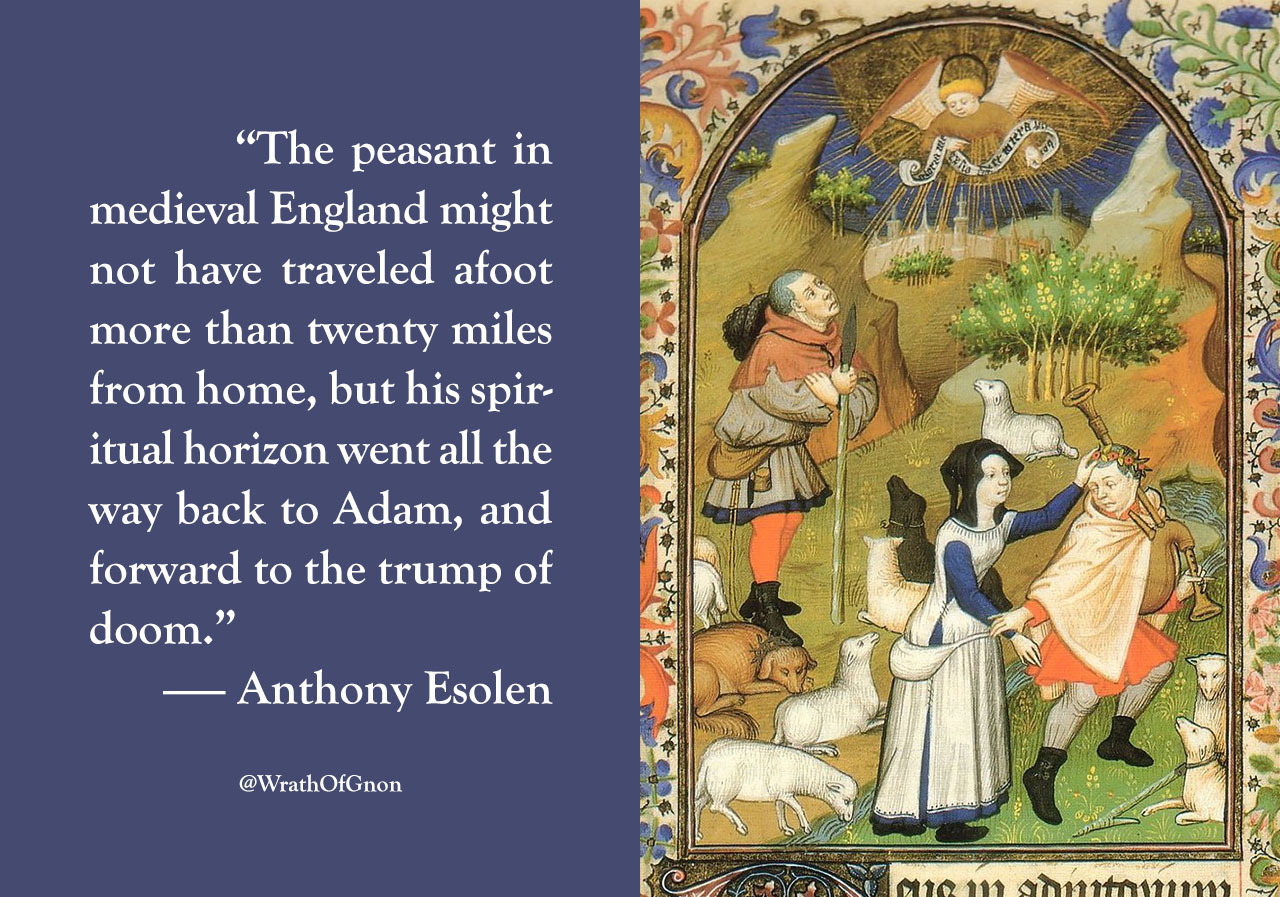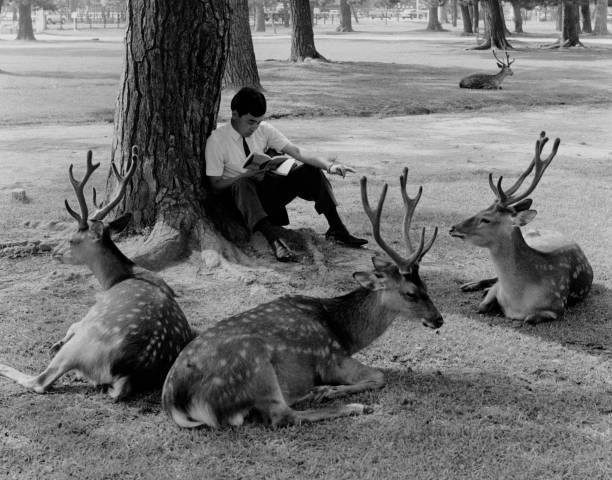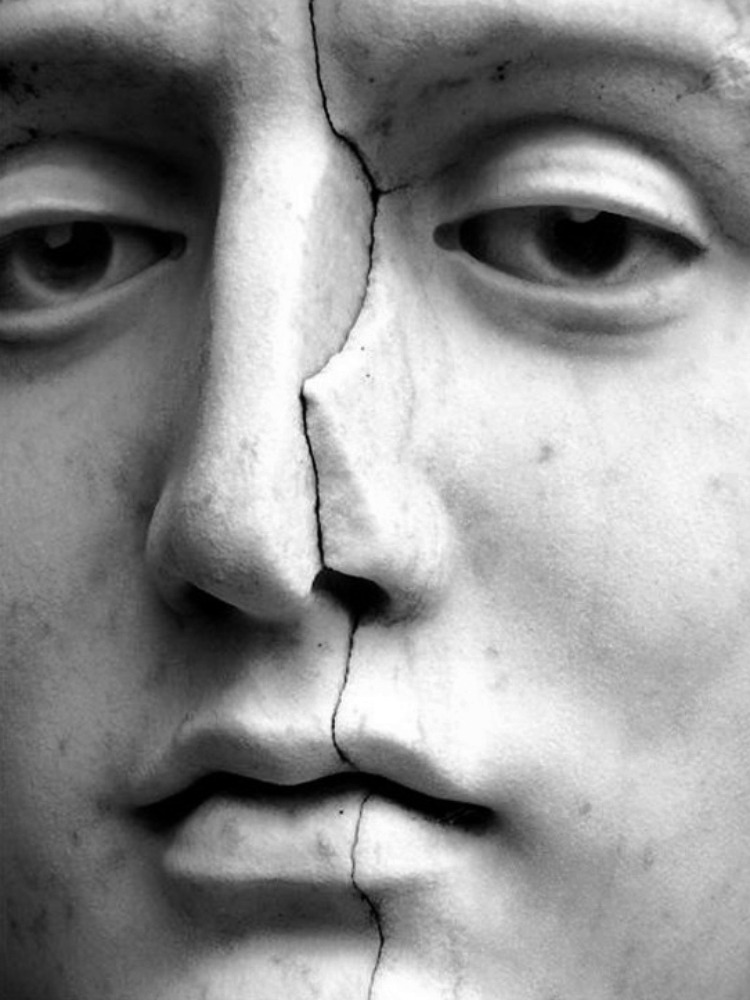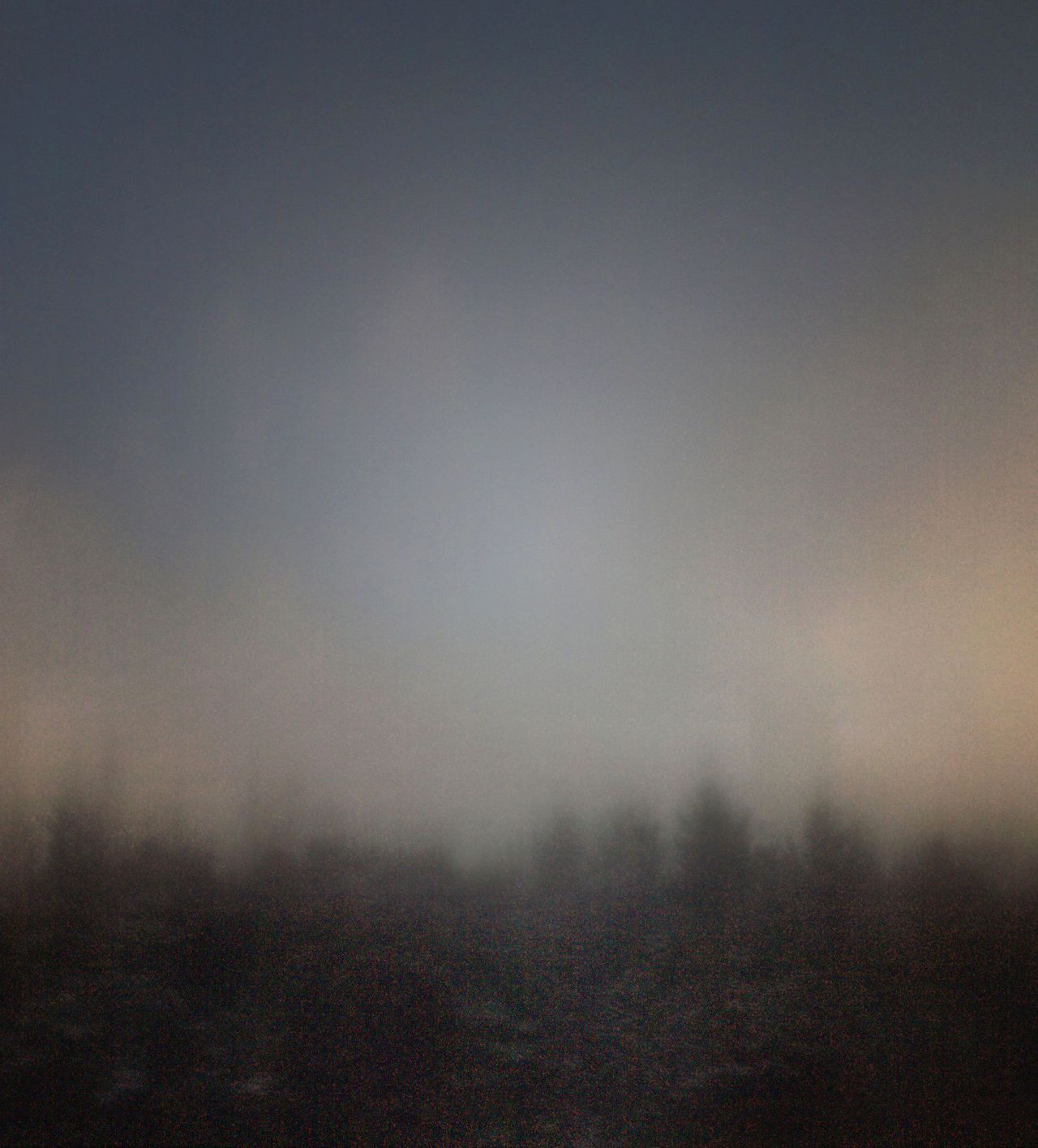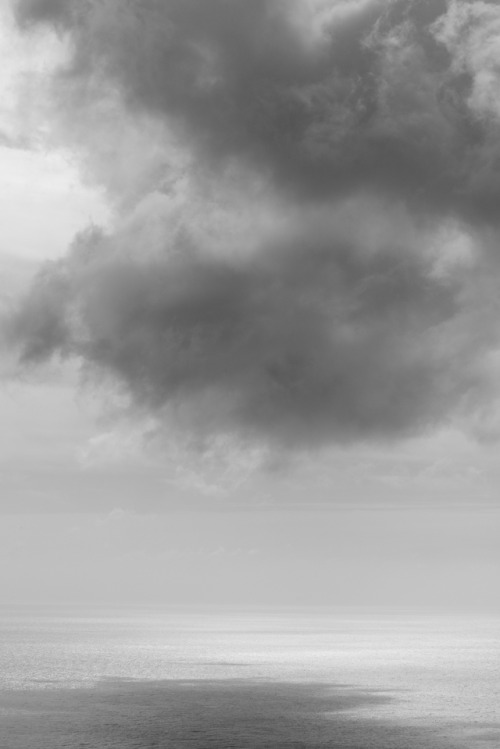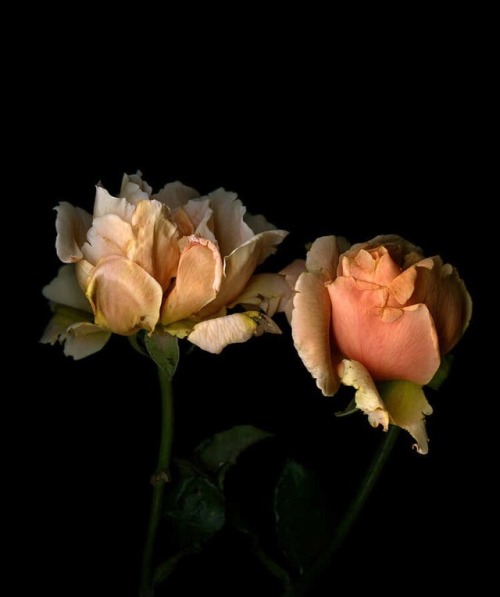31 May 2018
Waiting.
Collins, Birch Trunk, 2011
The spotted hawk swoops by and accuses me, he complains of my gab and my loitering.
I too am not a bit tamed, I too am untranslatable,
I sound my barbaric yawp over the roofs of the world.
The last scud of day holds back for me,
It flings my likeness after the rest and true as any on the shadow'd wilds,
It coaxes me to the vapor and the dusk.
I depart as air, I shake my white locks at the runaway sun,
I effuse my flesh in eddies, and drift it in lacy jags.
I bequeath myself to the dirt to grow from the grass I love,
If you want me again look for me under your boot-soles.
You will hardly know who I am or what I mean,
But I shall be good health to you nevertheless,
And filter and fibre your blood.
Failing to fetch me at first keep encouraged,
Missing me one place search another,
I stop somewhere waiting for you.
I stop somewhere waiting for you.
Walt Whitman
Debussy, Première rhapsodie
Simon Rattle conducts the Berlin Philharmonic Orchestra, Wenzel Fuchs, clarinet ...
Begin.
Begin at once to live, and count each separate day as a separate life. It is not that we have so little time but that we lose so much. The life we receive is not short but we make it so; we are not ill provided but use what we have wastefully. The time will come when diligent research over long periods will bring to light things which now lie hidden. A single lifetime, even though entirely devoted to the sky, would not be enough for the investigation of so vast a subject. And so this knowledge will be unfolded only through long successive ages. There will come a time when our descendants will be amazed that we did not know things that are so plain to them. Many discoveries are reserved for ages still to come, when memory of us will have been effaced.
Courageous.
We often read nowadays of the valor or audacity with which some rebel attacks a hoary tyranny or an antiquated superstition. There is not really any courage at all in attacking hoary or antiquated things, any more than in offering to fight one’s grandmother. The really courageous man is he who defies tyrannies young as the morning and superstitions fresh as the first flowers.
G.K. Chesterton
Thank you, Cultural Offering.
Happy birthday, Whitman.
Walt Whitman was born on this day in 1819.
TO the STATES
To the States or any one of them, or any city of the States, Resist
much, obey little,
Once unquestioning obedience, once fully enslaved,
Once fully enslaved, no nation, state, city of this earth, ever after-ward resumes its liberty.
American Experience: Walt Whitman ...
30 May 2018
Enchanted.
Collins, Apple Orchard, Normandy, 2016
Theodor Storm
Boundary.
Sir Roger on building skylines to human scale ...
Buildings touch the ground, and the business of resting on the ground, rather than crushing, mutilating, or annihilating it, is one fundamental part of the architectural task. But buildings also touch the sky, and in doing so they create one of the most significant boundaries in our world—the skyline, which is the boundary between the city and the heavens.
Traditional builders were very respectful towards this boundary. Their buildings were designed to meet the sky with cheerful gestures, wearing decorative crowns, reaching upwards with the prayerful fingers of the minarets or the questioning needles of the spires. Blunt stubs of flattened masonry might sometimes be necessary for military purposes. But they were never approved for use in the city, where every building needed a hat that would put its social nature on display.
Effect.
Imaginative [books] try to communicate an experience itself -- one that the reader can have or share only by reading-and if they succeed, they give the reader something to be enjoyed. Because of their diverse intentions, the two sorts of work appeal differently to the intellect and the imagination.
We experience things through the exercise of our senses and imagination. To know anything we must use our powers of judgment and reasoning, which are intellectual. This does not mean that we can think without using our imagination, or that sense experience is ever wholly divorced from rational insight or reflection. The matter is only one of emphasis. Fiction appeals primarily to the imagination. That is one reason for calling it imaginative literature, in contrast to science and philosophy which are intellectual.
This fact about imaginative literature leads to what is probably the most important of the negative injunctions we want to suggest. Don't try to resist the effect that a work of imaginative literature has on you.
Mortimer Adler, from How to Read a Book: The Classic Guide to Intelligent Reading
Employ.
A SONG in OCTOBER
Clouds gather, treetops toss and sway;
But pour us wine, an old one!
That we may turn this dreary day
To golden; yes, to golden!
What if the storm outside destroy
Alike Christian and heathen?
Nature must sweep the old away
To bring on a new season.
What if some aching dread we feel?
Lift glasses, all, and ring them!
True hearts, we know, will never quail
Whatever fortune brings them!
Clouds gather, treetops toss and sway;
But pour us wine, an old one!
That we may turn this dreary day
To golden, yes, to golden!
Autumn has come, but never fear,
Wait but a little while yet,
Spring will be here, the skies will clear,
And fields stand deep in violets.
The heavenly blue of fresh new days
Oh, friend, you must employ them
Before they pass away. Be brave!
Enjoy them; oh, enjoy them!
Enjoy them; oh, enjoy them!
Theodor Storm
Sound.
The most sensitive musical instrument is the human soul. The next is the human voice. One must purify the soul until it begins to sound.
Arvo Pärt
Arvo Pärt
Presence.
Raphael, Study of a Face, 1509
John O'Donohue
Unexpected.
Caravaggio, Judith and Holofernes (detail), 1599
Strangeness is the indispensable condiment of all beauty.That which is not slightly distorted lacks sensible appeal; from which it follows that irregularity – that is to say, the unexpected, surprise and astonishment, are a essential part and characteristic of beauty. The study of beauty is a duel in which the artist cries with terror before being defeated.
Charles Baudelaire
28 May 2018
Happy birthday, Percy.
The search is what anyone would undertake if he were not sunk in the everydayness of his own life. This morning, for example, I felt as if I had come to myself on a strange island. And what does such a cast away do? Why he pokes around the neighborhood and he doesn't miss a trick. To become aware of the search is to be onto something. Not to be onto something is to be in despair.
Walker Percy
26 May 2018
25 May 2018
Bring.
The influence of a vital person vitalizes, there’s no doubt about it. The world without spirit is wasteland. People have the notion of saving the world by shifting things around, changing the rules, and who’s on top, and so forth. No, no! Any world is a valid world if it’s alive. The thing to do is to bring life to it, and the only way to do that is to find in your own case where the life is and become alive yourself.
Joseph Campbell
24 May 2018
Heat.
ADVICE for a YOUNG PAINTER
First and foremost, determine if wanting to be a painter is just a passing romantic or otherwise fanciful notion or whether in fact it is a genuinely primal calling you must follow to be whole. Then, know what you’re getting into. The number of people in America today who can understand and appreciate real painting is about the same as the number of wild condors in California. Motive is everything, so if you find yourself daydreaming of becoming lionized amid a shower of applause, prizes, awards, chic soirees, and fat checks, then painting will be a waste of time, as this will guarantee your station outside the gate, knocking to no avail for the duration, and there will be no spiritually dignified Life in Art. There are probably places you can still access serious formal training in drawing and painting, but I don’t know where they are. To be on the safe side while you’re looking, steer clear of the so-called art institutes, as well as the pointless, ineffectual art departments at colleges and universities. Instead, be proactive by drawing, painting, reading, and traveling. This will eventually result in a real education and a path of your own while at the same time being far less expensive than a fraudulent degree. It will, however, put all the heat on you to pay attention and study diligently. Keep in mind as well that to become proficient will require a minimum of ten thousand hours of actual painting.
Russell Chatham
23 May 2018
Caelum.
celestial (adj.)
late 14c., "pertaining to the sky or the visible heavens; pertaining to the Christian or pagan heaven," from Old French celestial "celestial, heavenly, sky-blue," from Latin caelestis"heavenly, pertaining to the sky," from caelum "heaven, sky; abode of the gods; climate," which is of uncertain origin; perhaps from PIE *kaid-slo-, perhaps from a root also found in Germanic and Baltic meaning "bright, clear" (compare Lithuanian skaidrus "shining, clear;" Old English hador, German heiter "clear, shining, cloudless," Old Norse heið "clear sky").
The Latin word is the source of the usual word for "sky" in most of the Romance languages, such as French ciel, Spanish cielo, Italian cielo. Transferred sense of "heavenly, very delightful" in English is from early 15c. Celestial Empire "China" is from 1808, translating native names.
The Latin word is the source of the usual word for "sky" in most of the Romance languages, such as French ciel, Spanish cielo, Italian cielo. Transferred sense of "heavenly, very delightful" in English is from early 15c. Celestial Empire "China" is from 1808, translating native names.
Thank you, Online Etymology Dictionary.
Seer.
I say one must be a seer, make oneself a seer.
The Poet makes himself a seer by a long, rational and immense disordering of all the senses. All forms of love, suffering, madness: he searches himself; he consumes all the poisons in himself, to keep only their quintessence. Unspeakable torture, where he needs all his faith, every superhuman strength, during which he becomes the great patient, the great criminal, the great accursed – and the supreme Knower, among men! – Because he arrives at the unknown! Because he has cultivated his soul, already rich, more than others! He arrives at the unknown, and when, maddened, he ends up by losing the knowledge of his visions: he has still seen them! Let him die charging among those unutterable, unnameable things: other fearful workers will come: they’ll start from the horizons where the first have fallen!
I’ll go on:
So the poet is truly the thief of fire, then.
He is responsible for humanity, even for the animals: he must make his inventions smelt, felt, heard: if what he brings back from down there has form, he grants form: if it’s formless he grants formlessness. To find a language – for that matter, all words being ideas, the age of a universal language will come! It is necessary to be an academic – deader than a fossil – to perfect a dictionary of any language at all. The weak-minded thinking about the first letter of the alphabet would soon rush into madness!
This language will be of the soul for the soul, containing everything, scents, sounds, colours, thought attaching to thought and pulling. The poet would define the quantity of the unknown, awakening in the universal soul in his time: he would give more than the formulation of his thought, the measurement of his march towards progress! An enormity become the norm, absorbed by all, he would truly be an enhancer of progress!
This language will be of the soul for the soul, containing everything, scents, sounds, colours, thought attaching to thought and pulling. The poet would define the quantity of the unknown, awakening in the universal soul in his time: he would give more than the formulation of his thought, the measurement of his march towards progress! An enormity become the norm, absorbed by all, he would truly be an enhancer of progress!
Arthur Rimbaud
Stray.
When the starry sky, a vista of open seas, or a stained-glass window shedding purple beams fascinate me, there is a cluster of meaning, of colors, of words, of caresses, there are light touches, scents, sighs, cadences that arise, shroud me, carry me away, and sweep me beyond the things I see, hear, or think. The “sublime” object dissolves in the raptures of a bottomless memory. It is such a memory, which, from stopping point to stopping point, remembrance to remembrance, love to love, transfers that object to the refulgent point of the dazzlement in which I stray in order to be.
Julia Kristeva
Within.
The great painter Degas often repeated to me a very true and simple remark by Mallarmé. Degas occasionally wrote verses, and some of those he left were delightful. But he often found great difficulty in this work accessory to his painting. (He was, by the way, the kind of man who would bring all possible difficulty to any art whatever.) One day he said to Mallarmé: “Yours is a hellish craft. I can’t manage to say what I want, and yet I’m full of ideas …” And Mallarmé answered: “My dear Degas, one does not make poetry with ideas, but with words.”
Mallarmé was right. But when Degas spoke of ideas, he was, after all, thinking of inner speech or of images, which might have been expressed in words. But these words, these secret phrases which he called ideas, all these intentions and perceptions of the mind, do not make verses. There is something else, then, a modification, or a transformation, sudden or not, spontaneous or not, laborious or not, which must necessarily intervene between the thought that produces ideas – that activity and multiplicity of inner questions and solutions – and, on the other hand, that discourse so different from ordinary speech, which is verse, which is so curiously ordered, which answers no need unless it be the need it must itself create, which never speaks but of absent things or of things profoundly and secretly felt: strange discourse, as though made by someone other than the speaker and addressed to someone other than the listener. In short, it is a language within a language.
Paul Valéry
Labyrinthine.
Taylor, Birmingham Reference Library, The Reading Room, 1881
Libraries, whether my own or shared with a greater reading public, have always seemed to me pleasantly mad places, and for as long as I can remember I've been seduced by their labyrinthine logic, which suggests that reason (if not art) rules over a cacophonous arrangement of books.
Alberto Manguel
Sublime.
What The Heart Of The Young Man Said To The Psalmist.
Tell me not, in mournful numbers,
Life is but an empty dream!
For the soul is dead that slumbers,
And things are not what they seem.
Life is real! Life is earnest!
And the grave is not its goal;
Dust thou art, to dust returnest,
Was not spoken of the soul.
Not enjoyment, and not sorrow,
Is our destined end or way;
But to act, that each to-morrow
Find us farther than to-day.
Art is long, and Time is fleeting,
And our hearts, though stout and brave,
Still, like muffled drums, are beating
Funeral marches to the grave.
In the world’s broad field of battle,
In the bivouac of Life,
Be not like dumb, driven cattle!
Be a hero in the strife!
Trust no Future, howe’er pleasant!
Let the dead Past bury its dead!
Act,— act in the living Present!
Heart within, and God o’erhead!
Lives of great men all remind us
We can make our lives sublime,
And, departing, leave behind us
Footprints on the sands of time;
Footprints, that perhaps another,
Sailing o’er life’s solemn main,
A forlorn and shipwrecked brother,
Seeing, shall take heart again.
Let us, then, be up and doing,
With a heart for any fate;
Still achieving, still pursuing,
Learn to labor and to wait.
Henry Wadsworth Longfellow
Subscribe to:
Posts (Atom)
